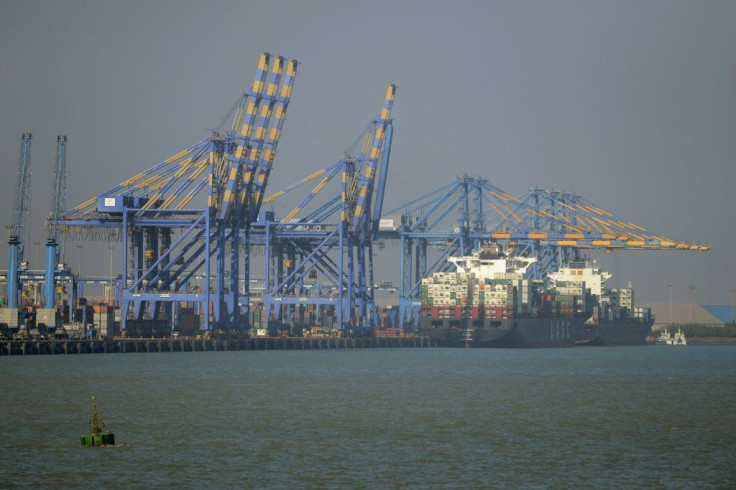Seizure Of Radioactive Substances Fuels Concerns Over Nuclear Transparency In Asia

Seizure of radioactive substances on a China-bound ship from Pakistan by Indian authorities raises concern over nuclear transparency in Asia.
On Nov. 18, alleged radioactive substances shipping their way from Pakistan to China in seven containers were seized by Indian authorities at Mundra Port in the western state of Gujarat, bordering Pakistan.
"On Thursday (Nov. 18), a joint Customs and DRI team seized several containers at Mundra Port from a foreign vessel on concerns that they contained undeclared hazardous cargo," Adani Ports, which handles Mundra Port, said in a statement.
The containers were not destined for any port in India but were en route from Karachi in Pakistan to Shanghai in China.
India offloaded them at Mundra Port for a joint inspection by the Customs and the Directorate of Revenue Intelligence, Adani Port added in the statement. Adani Ports said the cargo was listed as "non-hazardous."
Indian officials, on condition of anonymity, have claimed that contents had been classified as Hazard Class 7 which deals with radioactive material like enriched uranium.
Pakistan foreign office Nov. 20 refuted Indian claims about the seizure of a potentially radioactive consignment on board a vessel that originated from Karachi.
"The reporting by the Indian media about seizure of possible radioactive material is factually incorrect, baseless, laughable and a usual ploy of the Indian media to malign Pakistan and mislead the international community," foreign ministry spokesman Asim Iftikhar said in a statement.
These were 'empty containers' being returned to China after transportation of fuel used for K-2 and K-3 Nuclear Power Plants in Pakistan, Iftikhar added.
In September this year, the Indian home ministry transferred a similar case registered last year to the National Investigation Agency (NIA) wherein a vessel, 'Da Cui Yun', destined for Karachi, had a pressure chamber used to launch missiles.
The case was registered under relevant sections of the Weapons of Mass Destruction and Delivery Systems (Prohibition of Unlawful Activities) Act, 2005, along with other acts.
Since Pakistan and China began cooperating on civil nuclear energy in the late 1097s, Beijing has played a vital role in helping Pakistan develop its nuclear technology.
An Aug. 20, 2021, the two nations inked a pact on deepening nuclear energy cooperation which envisages the transfer of nuclear know-how, uranium mining and processing, nuclear fuel supply and starting research reactors.
The agreement's sweeping scope and content allow Pakistan unprecedented access to China's nuclear capability in terms of technology, material and training.
For China, an enhanced nuclear arsenal with Pakistan adds teeth to its strategy of countering India's nuclear strength.
When the Indian police arrested seven persons in July for 'possessing and planning to sell mineral uranium' from the central instate state of Jharkhand, Pakistan stepped up the ante against India.
The official handle of Pakistan's Ministry of Foreign Affairs Aug. 31 tweeted that it had "noted" three instances of "theft & illicit sale of radioactive material in India."
India hit out at Pakistan for making an unverified claim that material seized in Jharkhand's was uranium and described it as an attempt to malign the country.
According to India, in two of the three cases referred to in the tweet, investigations revealed that the material, suspected to be Californium, was fake and "not radioactive".
In a case registered in eastern India city of Kolkata two suspects were charged with illegally possessing radioactive substances worth over $573 million.
In the case reported from India's financial capital Mumbai, the material suspected to be "radioactive uranium" was found to be "uranium in its natural form, which is slightly radioactive but not harmful."
Earlier, media reports said that over 7 kg and more than 6 kg of uranium were seized in separate cases in May and June 2021 from unauthorized persons in India.
It shows the possible existence of a black market for such materials inside the country, Pakistan alleged.
The massive nuclear industry thriving in three Asian nations are too big to fail. So regulating it is a Himalayan task.
The ball is in the court of International Atomic Energy Agency (IAEA).





